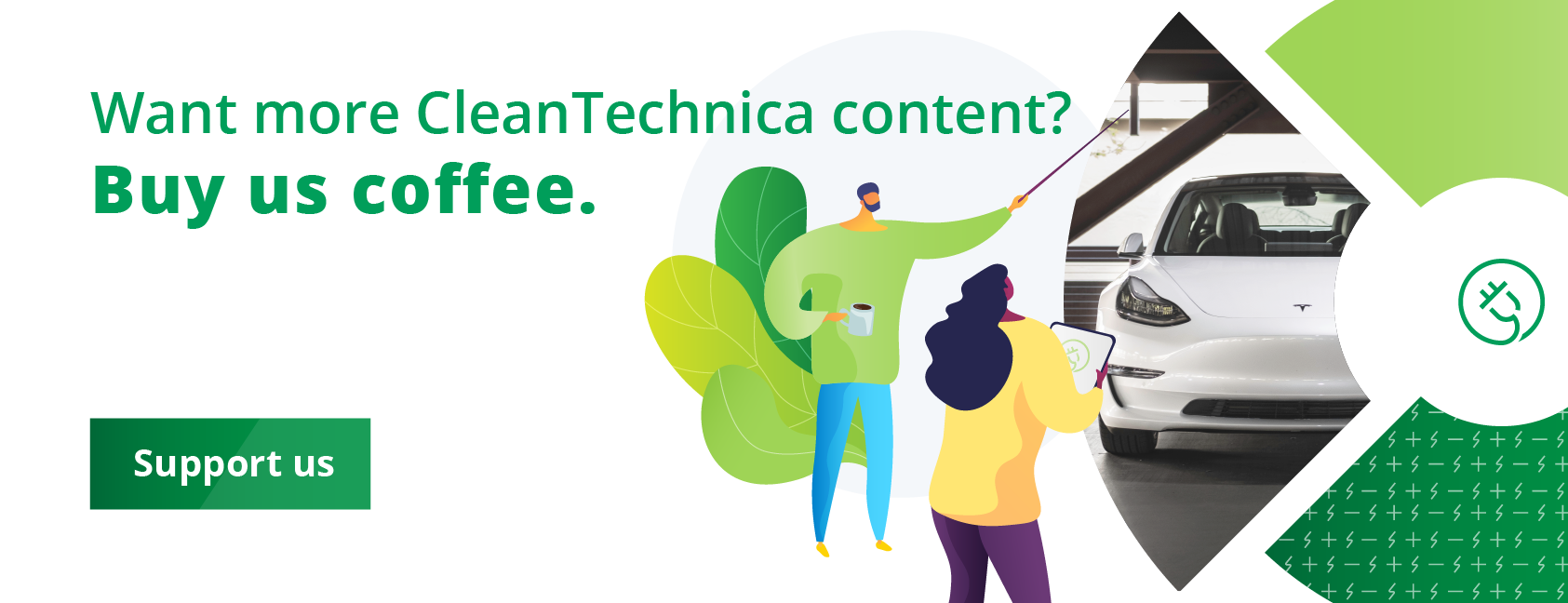
The economic news out of the UK has been less than encouraging ever since the nation’s weird and unprecedented withdrawal from the European Union in 2020, but finally a bright spot has appeared. Tata Motors, the leading Indian automaker company, has just announced that it will build a gigantic $5.2 billion EV battery plant in England for its iconic Jaguar Land Rover business.
New EV Battery Plant Breathes New Life Into UK Auto Industry
The Tata news is significant on several counts. This is the company’s first EV battery gigafactory to be built outside of India, it is described as one of the largest investments ever in the UK auto industry, and it is a rare opportunity for the UK to save face after the Brexit disaster.
Until Tata made its move, the UK had exactly zero EV battery gigafactories in the pipeline, while the European Union already has 30 gigafactories, according to a count by Reuters.
The UK is starting off with a bang. The new factory will have an initial output of 40 gigawatt-hours, which puts it in the running with some of the larger EV battery plants in Europe.
Prime Minister Rishi Sunak could barely contain himself when he announced the news earlier today. “We can be incredibly proud that Britain has been chosen as home to Tata Group’s first gigafactory outside India, securing our place as one of the most attractive places to build electric vehicles,” he said in a press statement.
More Diesel-Killing EV Batteries For The UK
Actually, Sunak was rather restrained. Energy Security Secretary Grant Shapps painted a more dynamic picture, exclaiming that the new EV battery plant “puts us firmly in the fast lane to becoming the capital of Europe’s electric car market, and makes crystal clear how they see the UK as the place to be for their future growth.”
“…this new factory will be the cornerstone of our automotive industry, backing manufacturers to develop and expand, and customers to make the switch from petrol and diesel, Shapps added.
He’s not kidding. The $5.2 billion (£4 billion) investment is expected to create up to 4,000 direct new jobs, with thousands more to follow in the supply chain.
The new EV battery plant will also play a leading role in the UK’s decarbonization plans. The Tata gigafactory alone is expected to account for about 50% of the battery capacity needed for the UK to meet its goals for the electric vehicle transition.
The clock is ticking. As of 2030, the UK plans to ban the sale of new gasmobiles.
On its part, Tata expects the factory to support electrification for its Range Rover, Defender, Discovery, and Jaguar brands when production begins in 2026. The company also anticipates that it could turn out enough new EV batteries to provide for other auto makers as well.
Nobody Expects…Brexit!
There being no such thing as a free lunch, the new Tata factory is reportedly enabled by subsidies under the UK’s Automotive Transformation Fund, with details to be disclosed later.
The ATF has the ambitious aim of raising the nation’s profile in the global EV market from soup to nuts, including supply chain materials as well as motors, power electronics, and fuel cells.
They may have to scramble to make that happen. As the Reuters reporting team points out, new tariffs kick in after this year under Britain’s post-Brexit trade deal with the EU.
“Major automakers including Vauxhall-owner Stellantis and Ford warned in May that the looming rules risked making Britain unviable for future investment,” they observed.
They also took note of the failure of the British startup Britishvolt earlier this year, which “underlined the difficulties of establishing a home-grown industry amid a shortage of suitable sites.”
That’s of a piece with other Brexit-related news. Last November the Financial Times ran down the consensus opinion, which goes something like this:
“… the vote to leave the bloc has made households poorer, that negotiating uncertainties have taken their toll on business investment and that new barriers to trade have damaged economic links between the UK and EU.”
FT reported that new trade deals with Australia and other countries “do not come close to offsetting the damage” from Brexit. The new Tata EV factory could help even the score, though it remains to be seen by how much.
Wait…Fuel Cells?
If you caught that thing about fuel cells in the ATF program, that’s of interest considering that hydrogen fuel cell electric vehicles are catching on in the UK, the EU and other parts of the world.
Here in the US skeptics abound, but EV battery supply chains are already stretched thin and fuel cells offer an alternative pathway to zero emission mobility.
Earlier this week, for example, there was a hitch in GM’s Brightdrop battery-electric delivery van production plans, when its factory in Canada ran short on batteries. GM is among the US automakers continuing to hold the fuel cell torch, a position that the battery shortage appears to vindicate.
Also worth noting is the fuel cell startup Nikola Motors, which appears to be back on its feet after stumbling a couple of years ago. If all goes according to plan, Nikola will bring its zero emission fuel cell trucks to the US Postal Service, among other customers.
Meanwhile, in May Ford announced that its popular E-Transit delivery van will be the platform for a three-year hydrogen fuel cell research project, funded in part by the UK’s Advanced propulsion center.
“The project will establish if hydrogen fuel cell technology can deliver more zero-emission range to heavy-use E-Transit customers travelling high mileages, with maximum loads, ancillary equipment such as chillers and with limited charging opportunities in the working shift,” Ford explained.
The program involves a fleet of eight fuel cell Ford E-Transit vans, which are assembled in Turkey for the European market.

Tata Hearts Fuel Cells, Too
If the new Tata EV battery plant works out, it’s possible that a fuel cell factory could be in the works, eventually. Back in 2021, Jaguar Land Rover announced that it is developing a fuel cell version of the Defender in the UK with an assist from the Advanced Propulsion Center, under a program called Project Zeus.
Tata is also getting a fuel cell assist from the Government of India, under the Technology Development and Demonstration Program in collaboration with the Indian Space Research Organization.
Last year the company showcased a fuel cell electric bus, and in April it stepped up its ongoing partnership with the US firm Cummins to bring more zero emission fuel cell vehicles to India.
As for the US, fuel cells are slowly trickling in, but they have a lot of catching up to do. Despite ongoing supply chain concerns, plans to increase EV battery manufacturing capacity have been going through the roof in the US, thanks in part to the one-two punch of government incentives and low cost labor.
Find me on Threads @tinamcasey. Also Post @tinamcasey, or @TinaMCasey on LinkedIn and Spoutible, or @Casey on Mastadon.
Image: Tata to build a new EV battery factory in the UK to support its Ziptron electric vehicle technology (image courtesy of Tata Motors).
I don’t like paywalls. You don’t like paywalls. Who likes paywalls? Here at CleanTechnica, we implemented a limited paywall for a while, but it always felt wrong — and it was always tough to decide what we should put behind there. In theory, your most exclusive and best content goes behind a paywall. But then fewer people read it! We just don’t like paywalls, and so we’ve decided to ditch ours. Unfortunately, the media business is still a tough, cut-throat business with tiny margins. It’s a never-ending Olympic challenge to stay above water or even perhaps — gasp — grow. So …
Sign up for daily news updates from CleanTechnica on email. Or follow us on Google News!
Have a tip for CleanTechnica, want to advertise, or want to suggest a guest for our CleanTech Talk podcast? Contact us here.
Former Tesla Battery Expert Leading Lyten Into New Lithium-Sulfur Battery Era:
CleanTechnica uses affiliate links. See our policy here.




